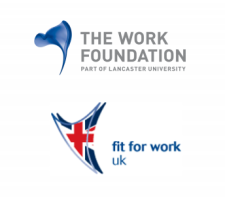October 17, 2014
Firms downsizing property dramatically as agile working takes hold, claims new report
 The sharp reduction in the amount of office space used by corporate occupiers as they adopt more agile working practices has been confirmed in a new study from facilities management services provider MITIE. The survey, as reported in the British Institute of Facilities Management (BIFM) magazine FM World, found that between the years of 2008 and 2014 firms reduced their floorspace by an average of 45 percent. The results of the report, based on interviews with property directors, mirror those of the Occupier Density Survey published last year by the British Council for Offices (BCO) which also found a marked (if smaller) reduction. The authors of the MITIE report conclude, similarly, that the economic downturn has been the main catalyst for the reduction in property used by occupiers and that the main way firms have accommodated the fall is with the uptake of flexible working practices.
The sharp reduction in the amount of office space used by corporate occupiers as they adopt more agile working practices has been confirmed in a new study from facilities management services provider MITIE. The survey, as reported in the British Institute of Facilities Management (BIFM) magazine FM World, found that between the years of 2008 and 2014 firms reduced their floorspace by an average of 45 percent. The results of the report, based on interviews with property directors, mirror those of the Occupier Density Survey published last year by the British Council for Offices (BCO) which also found a marked (if smaller) reduction. The authors of the MITIE report conclude, similarly, that the economic downturn has been the main catalyst for the reduction in property used by occupiers and that the main way firms have accommodated the fall is with the uptake of flexible working practices.















 Given the track record of people when it comes to making predictions about the future, it’s easy to grow cynical, especially when it involves a profession as subject to the vagaries of technological and cultural change as facilities management. But while we should be wary of more fanciful and long term thinking, any natural scepticism shouldn’t blind us to those predictions that we know will largely come true, especially those based on what we know is happening already. For example, recent research carried out by Cass Business School and Henley Business School and presented in the book
Given the track record of people when it comes to making predictions about the future, it’s easy to grow cynical, especially when it involves a profession as subject to the vagaries of technological and cultural change as facilities management. But while we should be wary of more fanciful and long term thinking, any natural scepticism shouldn’t blind us to those predictions that we know will largely come true, especially those based on what we know is happening already. For example, recent research carried out by Cass Business School and Henley Business School and presented in the book 


















October 6, 2014
Two-fifths of global employees would choose flexible working over a payrise
by Sara Bean • Comment, Flexible working, News, Workplace